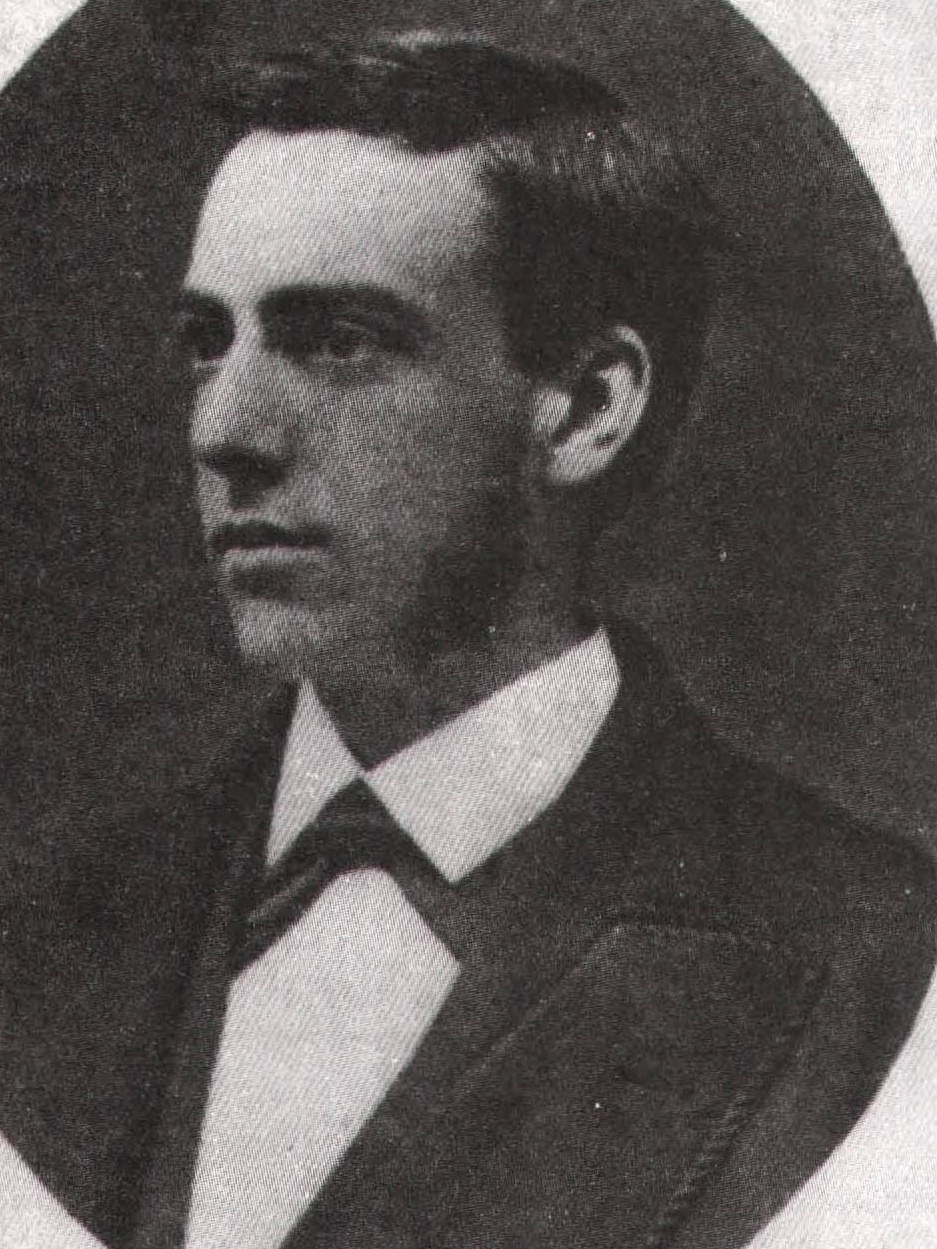
Thomas Watson, Sr., was born near Painted Post, a village in upstate New York, in 1874. His father was a lumberman and farmer, and Thomas worked by his side for a few months after graduating from high school. But Watson was an ambitious young man, eager to get off the farm and make his way in the world. He took a few courses at a local business school and found a $5-a-week job as a bookkeeper in a meat market in Painted Post. Then he met a peddler who offered him a job as his assistant, at double his current wage. Bored with the meat market and tiny Painted Post, Watson accepted, and the two men hit the road, selling pianos, organs, and sewing machines. When, a few months later, the peddler went on to better things, Watson took over the route at a salary of $12 a week. He liked his work and thought he was doing well – until another salesman pointed out that he could make much more on commission.
Astonishingly enough, it had never even occurred to him that most salesmen received a percentage of their gross, and he felt like a fool, angry at his ignorance and angry at his employer for taking advantage of him. But, at the same time, he realized how, by dint of determination, hard work, and talent, he could make his fortune. If he could just get a good job as a commission agent, well then, it would be only a matter of time before he was in the money. So, in 1893, at the age of nineteen, Watson took the train to Buffalo, the nearest big city, to find a job as a salesman.
He could not have launched his career at a worse time. The country was in the midst of a depression, and Watson, ‘who possessed the unmistakable air of a hayseed, nearly went broke before he landed a job as a sewing machine salesman. Unfortunately, he wasn’t very good at it. The sales pitch that had persuaded the farmers of Painted Post fell on deaf ears in Buffalo, and Watson was soon out of work. But he found a savior of sorts in a flashy, older, and more experienced salesman named C. B. Barron, who took him under his wing. Barron, a backslapping, cigar- smoking fellow who went in for spats, silk hats, and cutaways, persuaded a local bank, the Buffalo Building & Loan Association, to let them sell its stock on commission.
Working alongside Barron, Watson learned the basic tricks of the trade, particularly the importance of making a favorable first impression. He bought a stylish new wardrobe and cultivated a friendly, cheerful demeanor. He also imitated Barron’s pitches (which, given the kind of salesman Barron was, may have gone something like this: “My dear sir, the Buffalo Building & Loan Association is a Rock of Gibraltar, and it’s worth its weight in gold … but you look like the kind of man who knows that.”) Before long, Watson’s efforts began to payoff. “They say money isn’t everything,” he remarked years later. “It isn’t everything, but [it] is a great big something when you are trying to get started in the world and haven’t anything.”
Like most ambitious young men, Watson had his own get-rich scheme; in his case, it was going to be a chain of meat markets. Using the money he had earned with Barron and borrowing a small sum from his father, he opened a butcher shop in Buffalo and hired a few clerks to run it while he was on the road with Barron. He intended to plow most of his income into the market and open other stores as soon as his cash flow permitted. However, a few weeks after the first shop opened, Barron, true to type, absconded with most of their money. Outraged and suspicious, the bank fired Watson. Then the butcher shop failed, and Watson was right back where he had started – broke, desperate, and unable to find another job.
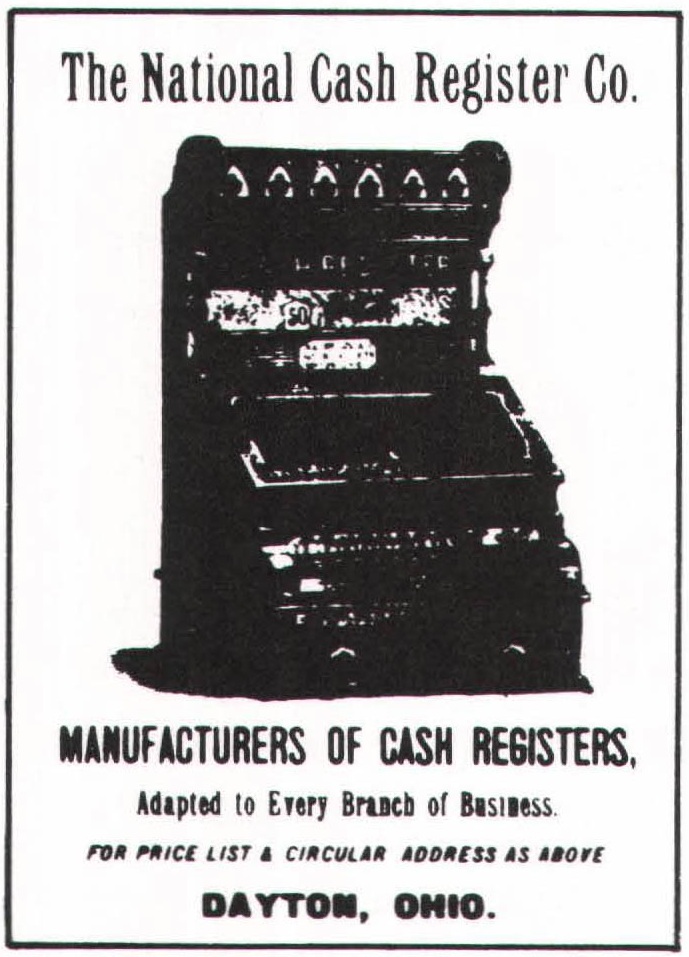
He finally talked his way into a position with the office of the National Cash Register Company (NCR). Once again, he was taken under the wing of an experienced salesman – this time, an honest one. John Range, the NCR district sales manager for upper New York, taught him how to sell registers the NCR way (which we’ll describe in a moment), and Watson eventually became the star of the Buffalo office. In his most successful week, Watson is said to have earned $1,225; since NCR’s cash registers cost between $100 and $200 and the company’s sales commission was 15 percent, Watson must have sold sixty to eighty machines in six days. Whether or not the story is true, Watson turned out to be an unusually talented and dedicated salesman.
In 1899, when Watson was twenty-five, NCR rewarded him with an appointment as branch manager of the Rochester, New York, office. Staffed by mediocrities, the branch had a history of poor sales. As manager, Watson received substantial incentives to improve his staff’s performance – a 35 percent cut on his own sales and a 20 percent share on his employees’ transactions. With so much money at stake, Watson resorted to some rather sneaky sales tactics. For instance, he and his men tailed the competition’s salesmen, calling on their clients, criticizing the quality of their registers, and hinting darkly about the opposition’s financial position. And in a few years, Watson managed to turn the office around. His success impressed NCR’s executives, and they decided that he was the right man for a special job – eliminating NCR’s competition from secondhand register dealers. By renovating and reselling old NCR equipment, these dealers were undercutting the company’s lucrative business in new machines.
With a secret subsidy from NCR, Watson opened up a secondhand shop in Manhattan in 1903 or 1904. Watson’s Cash Register & Second Hand Exchange wasn’t required to produce a profit; all it had to do was ruin the opposition, and Watson apparently did a fairly good job of it. He undersold legitimate dealers, hired their salesmen, opened stores near established outlets, and otherwise bedeviled the competition. Pleased with his work, NCR authorized Watson to conduct similar charades in Philadelphia and Chicago. These operations were clearly in violation of the Sherman Antitrust Act, as Watson undoubtedly knew, but such tactics were fairly common at the time. Corporate battles were considerably dirtier matters at the turn of the century than they are today, and the federal government was much less vigilant about policing the marketplace.
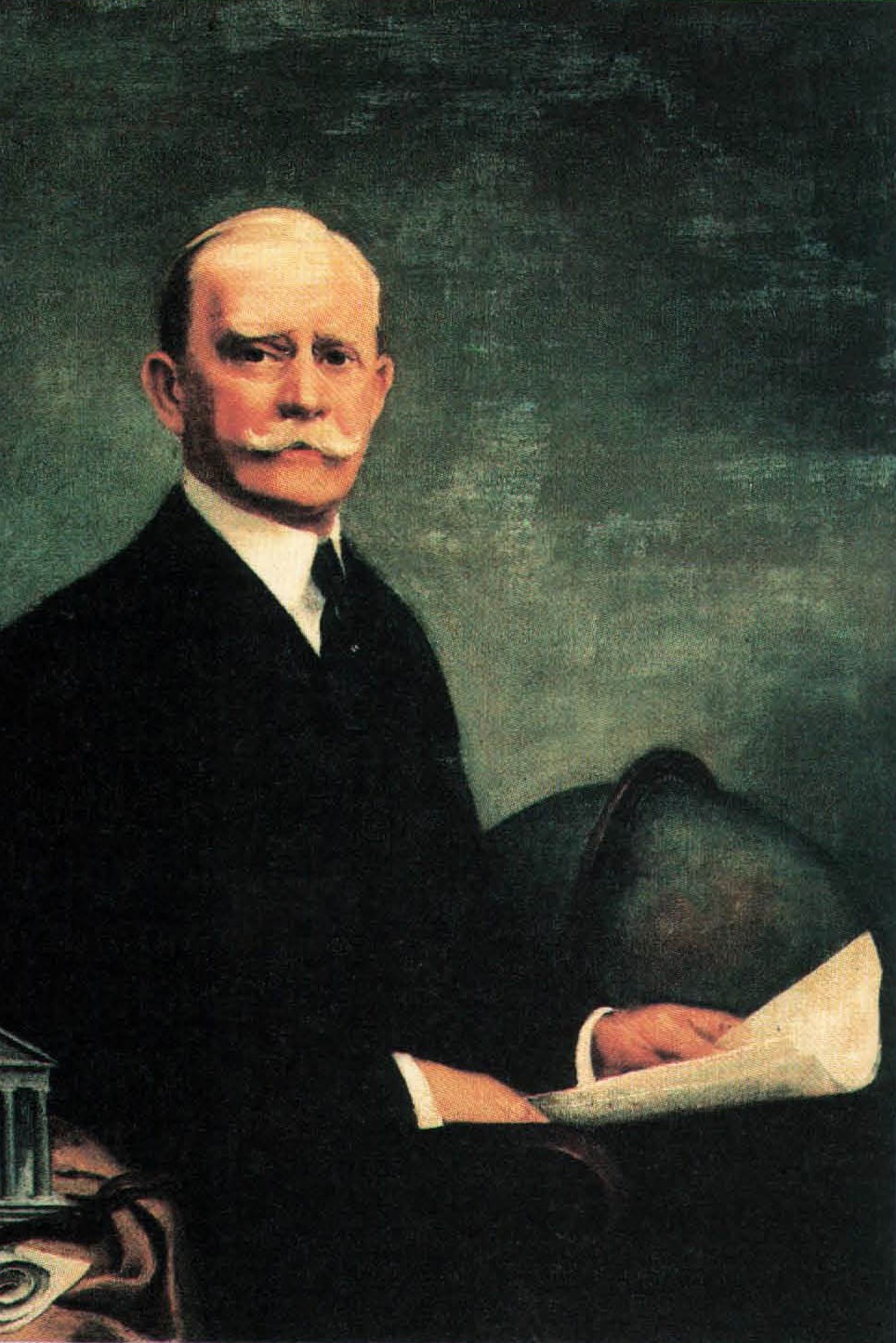
Having proved his mettle in the field, Watson was transferred to NCR headquarters in Dayton, Ohio, in 1907. Three years later, at the age of thirty-six, he was promoted to sales manager. He was one of a handful of executives at the top, working at the right arm of John Patterson (1844-1922), NCR’s capricious czar. Patterson, who had acquired the firm in 1884 when it possessed only a handful of employees, was a taskmaster, a bully to his executives and a benevolent despot to his workers. He was also one of the most imaginative businessmen of the late nineteenth and early twentieth centuries. An executive post at NCR was a first-rate education in business, and most executives put up with Patterson’s ferocious personality in return for the experience. Patterson is regarded as one of the founders of modern salesmanship, marketing, and personnel practices, and Watson carried most of his methods, in a more civilized and effective form, on to IBM.
At a time when most salesmen were cut from the same disreputable cloth as Barron, Patterson sought to fashion a sales force that was the very image of professionalism. He tended to hire a certain type of salesman – generally young, fit, white Protestant males with plenty of ambition and little or no sales experience. “It is the men who are willing to accept information and profit by it that will get ahead in this world,” he once said. “I think that better salesmen can be made of new, green men, who are willing and energetic, than can be made of men who have had some experience in their business.” And he meant it; when Watson first applied for a job with NCR’s Buffalo office, Range had rejected him because he had too much of the wrong kind of experience.
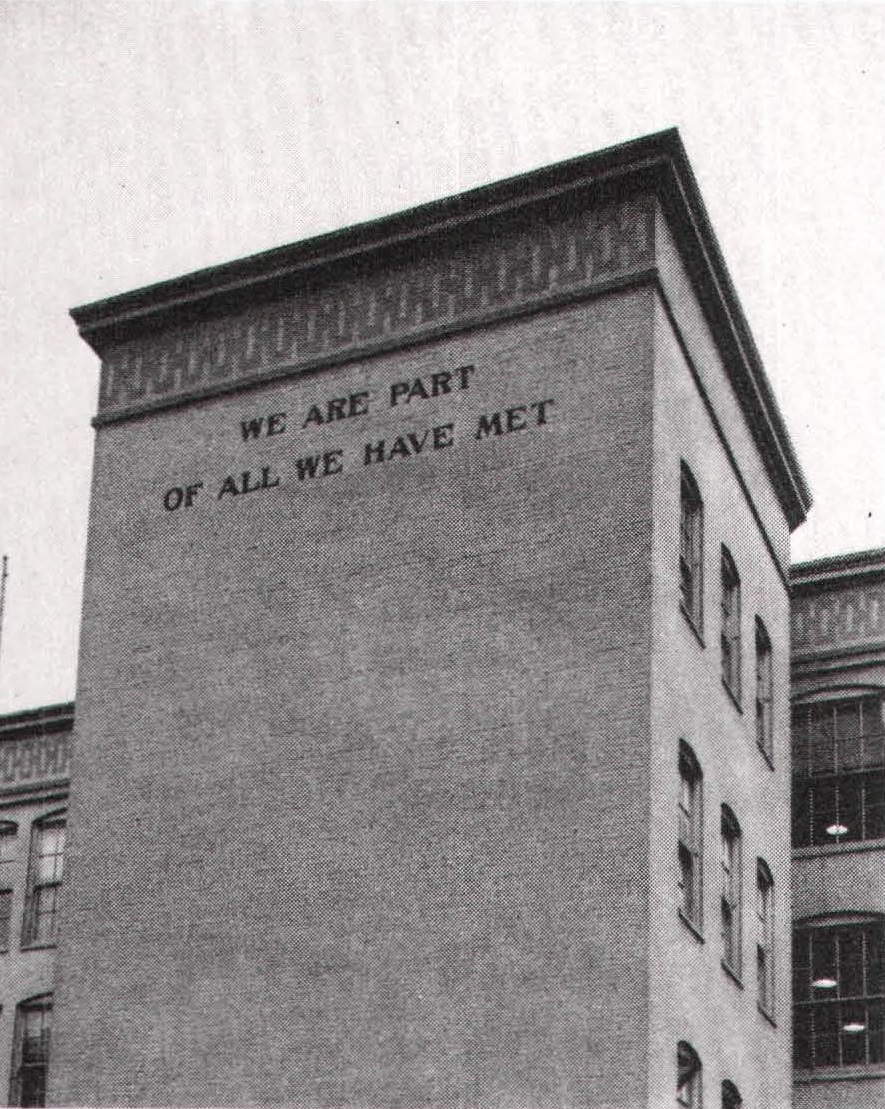
Believing that great salesmen are made, not born, Patterson established a company sales school- one of America’s first – in 1894. There, NCR recruits were taught the principles of “scientific” salesmanship and company veterans were drilled in new techniques. In Patterson’s opinion, NCR was really providing a service, not a product; therefore, a salesman’s first job was to show customers how registers would cut down on theft by clerks and enable managers to keep close track of sales. Then he had to convince them that NCR’s machines were the best. A salesman was expected to provide honest, sincere, and helpful advice, not the backslapping patter of a Barron. Patterson was fond of encapsulating his selling philosophy in catchy slogans, posted in NCR offices and factories. One of the most prevalent pieces of gospel was a single word: “THINK.”
While most firms concentrated on manufacturing, slighting their salesmen with low commissions, unrestricted territories, and little promotional support, Patterson emphasized sales and marketing. His salesmen received high commissions, guaranteed territories, paid vacations, and frequent bonuses. And they were backed by extensive advertising and promotional campaigns; a pioneer in the use of direct-mail advertising, Patterson spent almost as much money on promotion as on production. Salesmen who met their annual quotas were inducted into the Century Point Club, feted at company conventions (where liquor was forbidden and smoking frowned upon), and personally congratulated by Patterson – and their quotas were raised the following year. But they had no job security. If a salesman fell consistently short of his quota, he was fired without ceremony.
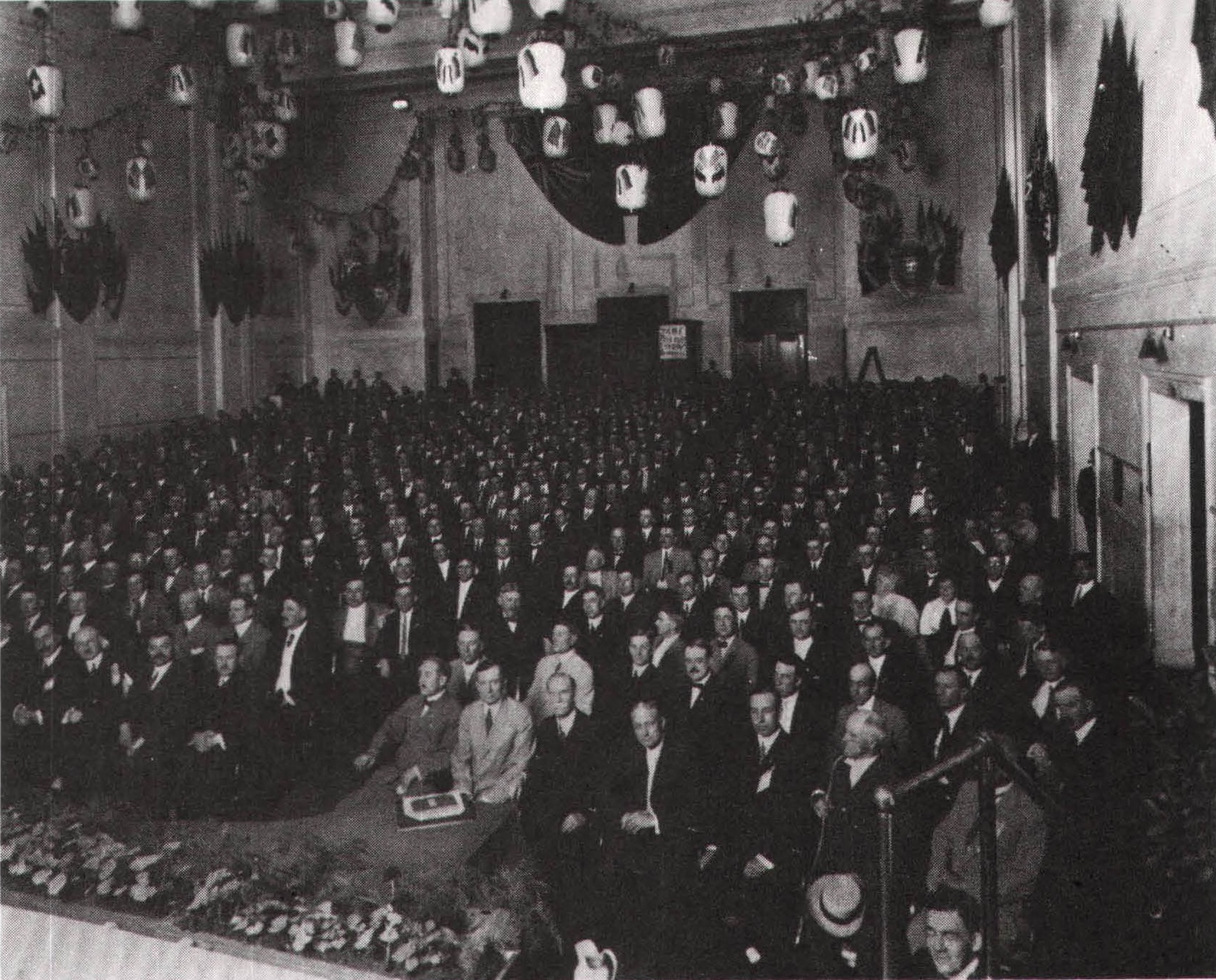
Although the salesmen were NCR’s vanguard, Patterson also devoted a good deal of attention to the well-being of his factory workers. Since he believed that a company’s success depends on a loyal and happy workforce – a rare point of view at the turn of the century – he made sure that NCR’s wages and amenities were above average. He built safe, well-ventilated factories, and installed showers, medical facilities, lunch rooms, and gymnasiums. He was farsighted in other ways, too, establishing, for example, an Inventions Department to improve NCR equipment and develop new products. All this – the concentration on sales, working conditions, and benefits – paid off handsomely, making NCR by far the largest register manufacturer in the country.
In 1910, the American Cash Register Company, NCR’s leading competitor, sued NCR for violating the Sherman Antitrust Act. Among other things, American Cash accused NCR of trying to eliminate the secondhand trade, of filing frivolous patent-infringement suits against other firms, and of advertising phony registers in an effort to undermine the competition’s business. All the charges were true, and the evidence was damning; the top ranks of American Cash were sprinkled with former NCR executives, fired on whim by Patterson, and they knew where the bodies were buried. The federal government investigated the charges, and Patterson, Watson, and twenty-eight other NCR executives were indicted and found guilty in 1913. Watson was sentenced to a year in jail and was fined $5,000. (Patterson and the other executives received similar penalties.) In 1915, a higher court ordered a retrial, but Patterson, who refused to admit any culpability, signed a consent decree on behalf of NCR and a second trial was never held.
In April 1914, a year before NCR filed its appeal, Watson was fired in one of Patterson’s periodic executive shakeups. The direct cause was disagreement over sales strategy, but Watson had always had an independent streak that didn’t sit well with his boss. Patterson disliked strong executives who thought for themselves, and he eventually fired most of his best men. (When Patterson said “THINK,” he really meant “my way.”) Fortunately, Watson had seen the writing on the wall and had started looking for a job the year before. He had an excellent reputation in the business machine industry, and even though he had been convicted of antitrust violations, it was unlikely that he would go to jail. In the eyes of most businessmen, the sentence was a badge of honor, proof of his zeal and loyalty. As a result, Watson received several job offers, including one from an interesting business machine company in Manhattan that was looking for a new president.